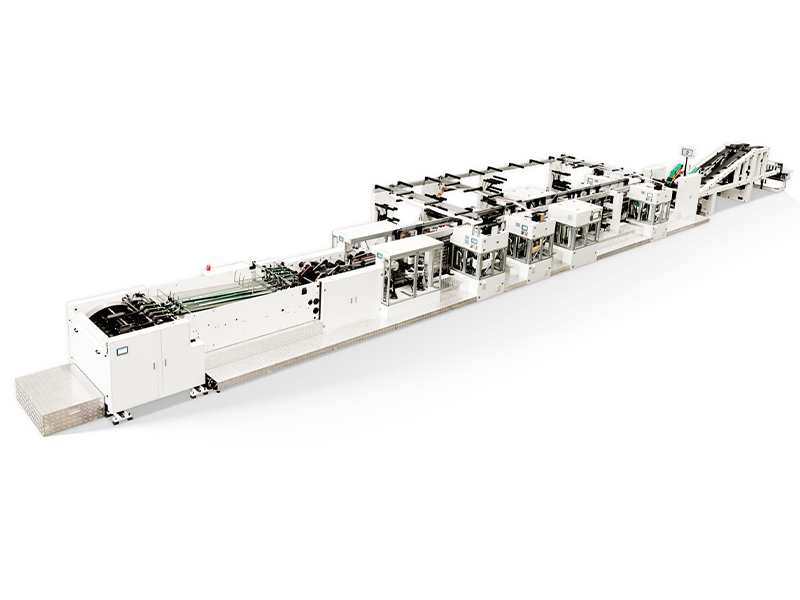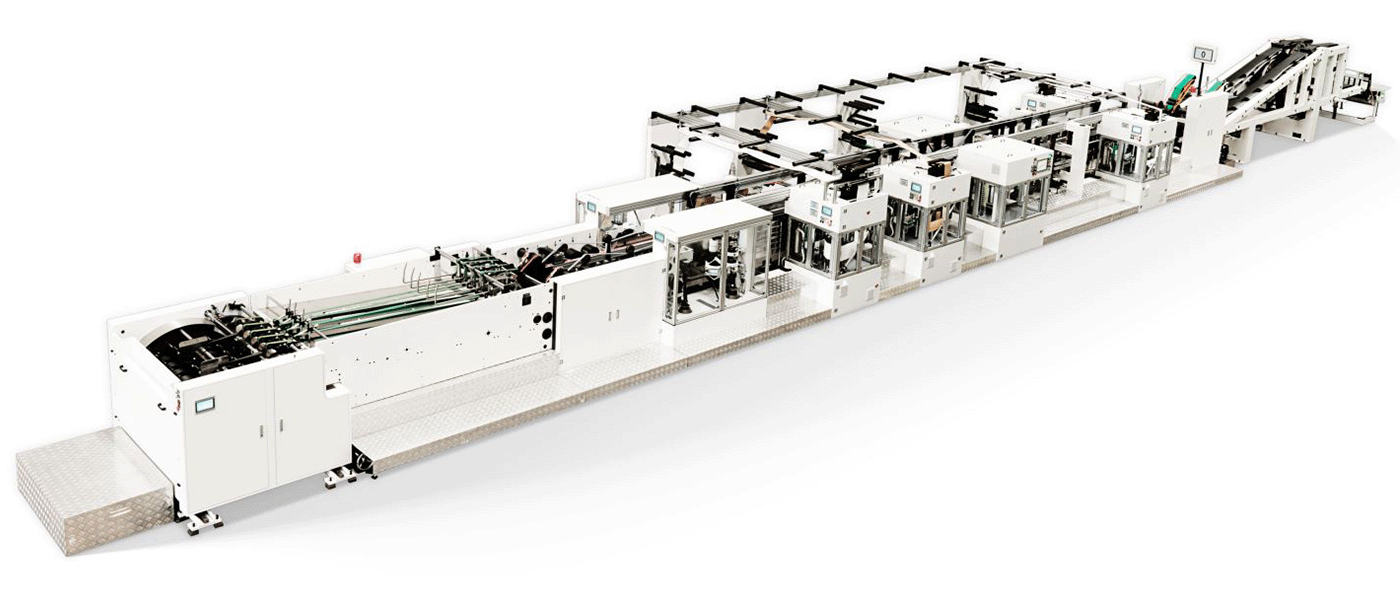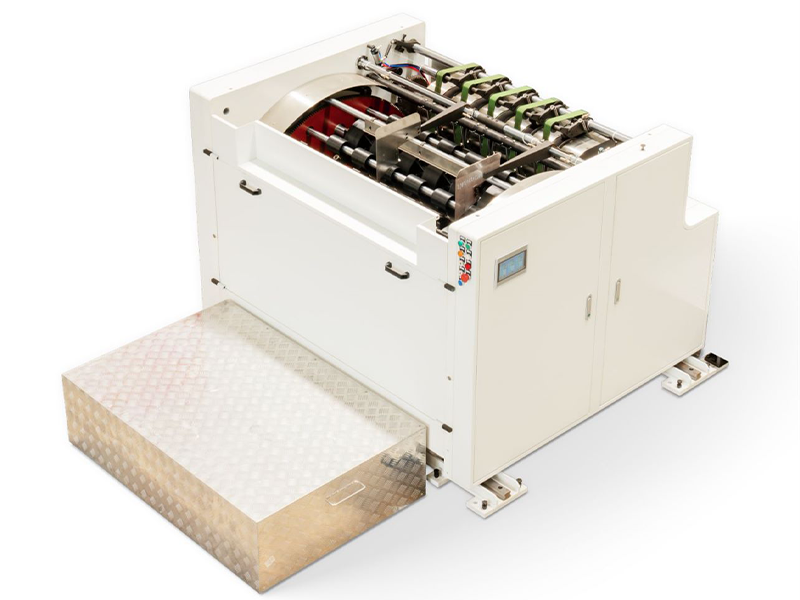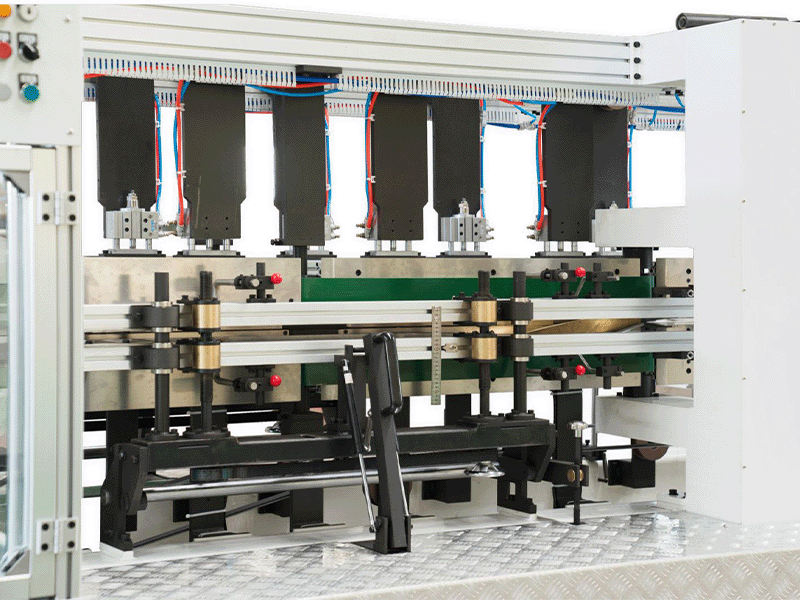Valve bag forming machines have become a cornerstone in the packaging industry, offering a versatile and efficient solution for packaging a wide range of powdered or granular materials. These machines are designed to produce valve bags with a one-way valve mechanism, allowing for controlled filling while minimizing air ingress or contaminants. The versatility of valve bag forming machines is evident in their ability to work with various materials, including polyethylene, polypropylene, and woven fabrics, making them indispensable across multiple industries such as agriculture, chemicals, construction, and food.
Introduction to Valve Bag Forming Machines
Valve bag forming machines are specialized devices that transform raw materials into precisely shaped bags with integrated valve mechanisms. Key components of these machines include a material feeding system, sealing unit, cutting unit, and valve applicator. The material feeding system ensures a continuous supply of raw materials, while the sealing unit uses heat or pressure to create secure seals. The cutting unit precisely shapes the bags, and the valve applicator affixes the valve mechanism onto the bags.
The process of forming valve bags involves several stages:
Material Selection and Preparation: The choice of material depends on the intended use of the bags. For example, polypropylene is commonly used for packaging fertilizers due to its durability and resistance to moisture.
Machine Setup: The machine is calibrated to produce bags of the desired size and shape. This includes setting the length, width, and valve position.
Production Cycle: The machine operates in a continuous cycle, feeding the material, sealing the edges, cutting the bags to size, and applying the valve mechanism.
Quality Control: Finished bags are inspected for quality and consistency before being packaged for distribution.
Applications Across Industries
Agriculture Industry
In agriculture, valve bags are commonly used for packaging fertilizers, seeds, and animal feed due to their durability and moisture resistance. The use of valve bags in this sector ensures that products remain fresh and protected from environmental factors, which is crucial for maintaining their quality and effectiveness. For instance, fertilizers packaged in valve bags can be stored for longer periods without losing potency, and seeds remain viable for planting.
The benefits of using valve bags in agriculture include:
Moisture Protection: Valve bags prevent moisture from entering the bag, which is essential for maintaining the effectiveness of fertilizers and the viability of seeds.
Pest Control: The sealed nature of valve bags helps prevent pests from accessing the contents, reducing the risk of infestation.
Easy Handling: The valve mechanism allows for easy filling and dispensing of contents, making them convenient for use on farms.
Chemical Industry
The chemical industry benefits significantly from valve bags as they provide a reliable containment solution for powdered or granular substances. Valve bags ensure safe handling and transportation of chemicals by preventing leakage and contamination. This is particularly important for hazardous materials, where secure packaging is essential to prevent accidents and environmental damage.
Valve bags in the chemical sector offer several advantages:
Safety: By preventing leakage, valve bags reduce the risk of chemical spills and exposure to hazardous substances.
Compliance: Valve bags help companies comply with safety regulations by providing a secure packaging solution for hazardous materials.
Efficiency: The ease of filling and sealing valve bags streamlines production processes in chemical manufacturing.
Construction Industry
In the construction sector, valve bags are used to package materials such as cement, concrete, sand, and gypsum. The ease of filling and dispensing these materials from valve bags makes them ideal for construction sites, where efficiency and speed are crucial. Additionally, the durability of valve bags ensures that construction materials remain protected during transportation and storage.
The use of valve bags in construction offers several benefits:
Durability: Valve bags withstand rough handling and environmental conditions, ensuring that construction materials remain intact.
Convenience: The valve mechanism allows for easy pouring of materials, which is beneficial for construction projects requiring rapid material deployment.
Cost-Effectiveness: By reducing material waste and ensuring that materials remain usable, valve bags contribute to cost savings in construction projects.
Food Industry
Valve bags are widely used in the food industry for packaging items like flour, sugar, cocoa powder, and pet food. The one-way valve mechanism helps maintain product freshness by allowing excess air to escape while preventing external contaminants from entering the bag. This feature is particularly beneficial for food products that are sensitive to moisture and air exposure.
Valve bags in the food sector provide several advantages:
Freshness Preservation: By controlling air flow, valve bags help maintain the freshness of packaged foods, extending shelf life.
Contamination Prevention: The sealed nature of valve bags prevents external contaminants from entering, ensuring food safety.
Convenience: Valve bags are easy to fill and dispense, making them convenient for both manufacturers and consumers.
Benefits of Valve Bag Forming Machines
Efficiency and Cost-Effectiveness
Valve bag forming machines significantly enhance production efficiency by automating the packaging process. They streamline the production of bags, reducing the time and labor required for bag fabrication. With automated material feeding, sealing, and cutting mechanisms, these machines can produce large volumes of bags quickly and consistently, thereby enhancing overall production efficiency.
The cost-effectiveness of these machines is evident in several areas:
Reduced Labor Costs: Automation minimizes the need for manual labor, reducing operational costs.
Increased Output: High-speed production capabilities allow for increased output, meeting high demand without compromising quality.
Material Optimization: Precise cutting and sealing reduce material waste, optimizing resource utilization.
Product Protection and Durability
Valve bag forming machines create hermetically sealed bags, ensuring optimal protection for the packaged contents. The one-way valve mechanism prevents external contaminants from entering the bag while allowing excess air to escape, preserving product freshness and integrity. Additionally, valve bags produced by these machines are renowned for their robustness and resilience, capable of withstanding rigorous handling, transportation, and storage conditions.
The durability of valve bags is crucial for maintaining product quality:
Moisture Resistance: Valve bags protect contents from moisture, which is essential for maintaining the effectiveness of products like fertilizers and cement.
Pest Resistance: The sealed nature of valve bags prevents pests from accessing the contents, reducing the risk of infestation.
Mechanical Strength: Valve bags are designed to withstand mechanical stress, ensuring that contents remain secure during transportation and storage.
Environmental Sustainability
Valve bag forming machines contribute to environmental sustainability by reducing waste and promoting recyclable packaging solutions. The ability to produce bags from recyclable materials and minimize material waste during production makes these machines an eco-friendly choice for industries seeking to reduce their environmental footprint.
The environmental benefits of valve bag forming machines include:
Recyclable Materials: Many valve bags are made from recyclable materials, reducing plastic waste and supporting circular economy practices.
Waste Reduction: Precise cutting and sealing minimize material waste, optimizing resource utilization and reducing the amount of waste generated during production.
Energy Efficiency: Modern machines are designed to be energy-efficient, reducing the carbon footprint associated with packaging production.
Conclusion
Valve bag forming machines have revolutionized the packaging industry with their versatility, efficiency, and reliability. Their applications across diverse sectors such as agriculture, chemicals, construction, and food underscore their importance in modern manufacturing. As industries continue to prioritize efficiency, sustainability, and product protection, valve bag forming machines are poised to remain at the forefront of packaging solutions. With ongoing innovations and technological advancements, these machines will continue to play a vital role in shaping the future of packaging.




